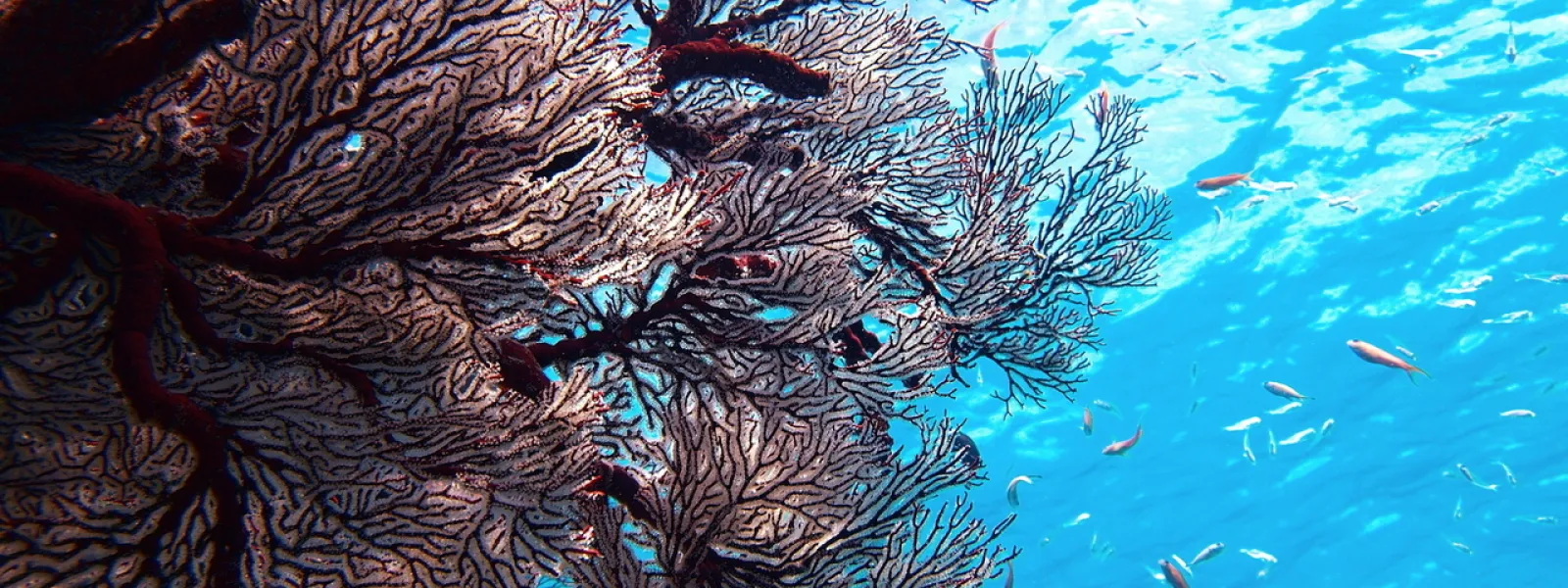
Press Center
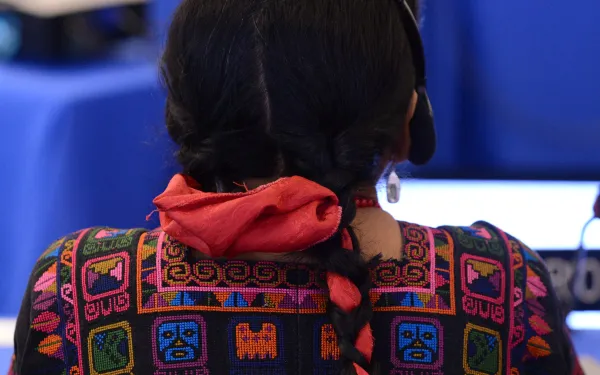
Attacks against Guatemalan human rights defenders denounced
Communities and organizations appealed to the Inter-American Commission on Human Rights, urging the State of Guatemala, private businesses, and investors to guarantee the human rights of people and communities affected by large hydroelectric projects. They presented a report, outlining 10 different cases, which documents 273 incidents of threats, criminalization, and attacks against defenders, traditional authorities, journalists, and communities. Criminalization included 103 arrest warrants, imprisonment of 36 defenders, and the murder of 11. Washington, DC, United States. A coalition of communities and organizations denounced human rights violations against traditional and indigenous communities in Guatemala, at a hearing before the Inter-American Commission on Human Rights. Because of their opposition to large hydroelectric projects, the human rights defenders have been threatened, assaulted, treated as criminals, and assassinated. A report presented before the Commission, featuring 10 different cases, notes that various communities confronting these projects have faced rights abuses including violations of their rights to free, prior, informed, and culturally appropriate consultation; self-determination; due process; and life. The report also outlines how those who defend affected people and communities have been victims of threats and aggressions. The most common attacks include arrest warrants (103), assaults resulting in injuries (56), imprisonment (36), detention (25), criminalization (16), and threats (15). There have been 11 documented murders and three conflict-related deaths in communities that oppose these hydroelectric projects. At least 19 companies are linked to hydroelectric projects in Guatemala, of which 55 percent are national, 40 percent are transnational, and five percent are State-owned. The complaints emphasized that it is the duty of the State to guarantee the rights of communities, and of the people who defend them. The obligation to respect human rights also extends to operating companies and project funders. Therefore, the organizations and communities ask the Guatemalan State to: Comprehensively respect the rights of indigenous people, including the rights to self-determination; consultation; and free, prior, informed, and culturally appropriate consent. Ensure the safety of human rights defenders. Include the participation of indigenous communities in the design and implementation of their energy-development policies. They also request the companies involved to: Comply with due diligence in matters of business and human rights. Refrain from taking actions, such as filing lawsuits, that result in criminalization of and attacks on human rights defenders. Publicly recognize the positive and fundamental role of human rights defenders in democracy. The complete report (in Spanish) is available here. Authors Include: Acompañamiento de Austria (ADA); Asamblea Departamental de Pueblos de Huehuetenango (ADH); Asociación de Abogados Mayas de Guatemala; Asociación Indígena Ch`Orti` Nuevo Día; Interamerican Association for Environmental Defense (AIDA); Business and Human Rights Resource Center; Consejo del Pueblo Maya (CPO) Consejo Mam; Guatemala Human Rights Commission, USA (GHRC); Guatemala Solidarity Network; Microregión de Ixquisis, San Mateo Ixtatán; The Swedish Fellowship of Reconciliation (SweFOR); PAYXAIL YAJAW KONOB (Gobierno Ancestral Plurinacional) AKATEKA, CHUJ, POPTI’, Q’ANJOB’AL; International Platform Against Impunity; Protection International; Proyecto Acompañamiento Quebec Guatemala Montréal, Canadá; Resistencia Río Dolores and Unidad de Protección a Defensoras y Defensores de Derechos Humanos (UDEFEGUA). Press contacts: Karen Hudlet, Business and Human Rights Resource Center, [email protected] Rodrigo da Costa Sales, Interamerican Association for Environmental Defense (AIDA), [email protected]
Read more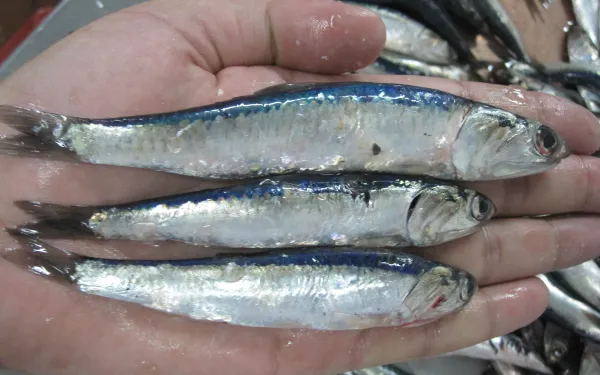
AIDA statement on the death of thousands of fish in Costa Rica
The recent mass die-off of anchovy—a species on which birds, marine mammals, and other fish depend for nutrition—must be analyzed in detail. Upon finding the cause, an integrated solution must be implemented at the national and regional levels. San José, Costa Rica. On February 15, thousands of anchovy washed onto the beaches of Puntarenas, two kilometers from the gulf of Nicoya. Experts from the National University of Costa Rica have ruled out algae-producing toxins and a red ride—which occurs from excessive proliferation of microalgae—as possible causes. At this point, authorities do not know why the fish died. The anchovy is a species that contributes greatly to the balance of the marine environment. Many species of birds and marine mammals, as well as other fish, depend on the anchovy as a vital source of nutritients and protein. Responding to the incident, Gladys Martínez, attorney with AIDA’s Marine Biodiversity and Coastal Protection Program, said: “It is vital that we analyze in detail the factors that may have caused this mass anchovy die-off. We have to determine what is affecting them and prevent a similar situation from happening again. Once the cause is found, a solution must be implemented that takes into account all components of the marine environment. “In addition, it is important that Costa Rica work both nationally and regionally on a comprehensive solution. Anchovy is a common species in the region and, although not highly migratory, it does move over short distances, warranting the involvement of surrounding nations as well.” Press contact: Gladys Martínez, AIDA, [email protected], +506 8321 4263
Read more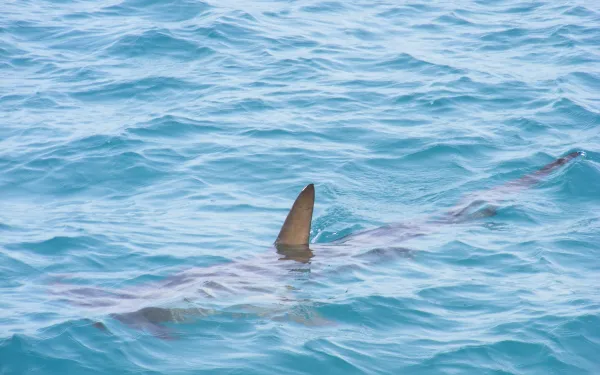
Costa Rican court issues first criminal sanction against shark finning
In a historic decision, a Puntarenas court convicted a businesswoman for shark finning. The woman had brought shark fins to port separated from the body, a practice illegal in Costa Rica, with intentions of selling them abroad. The Public Prosecutor’s indictment was supported by civil society organizations that argued her actions violated national and international laws protecting marine life. Puntarenas, Costa Rica. On February 7, the Trial Court of Puntarenas imposed a six-month prison sentence on a Taiwanese businesswoman for illegally trading in shark fins. The woman had brought to port shark fins detached from the animals body and gathered together with a wire, a process know as finning. She had intended to sell the fins abroad. This ruling is the first time the practice, illegal under national and international law, has been punished in Costa Rica. “We are pleased that, from the power of the Judiciary, Costa Rica has sent a clear signal that its priority is to protect the country’s sustainability. The response to the finning was appropriate, and responsible fishermen and environmental authorities will applaud it as such. At Conservation International, we reiterate our commitment to sustainable fisheries, transparent management of marine resources, and control of the country’s environmental regulations,” said Marco Quesada, director of the Costa Rica Program of Conservation International (CI). In 2011, justice failed in favor of the businesswoman. That decision was rebutted by the Public Prosecutor’s Office, which obtained a second trial in which the crime was finally punished. The final sentence indicates that the businesswoman is responsible “for the crime of ordering the removal of the shark fin without the respective body, to the detriment of the natural resources” of Costa Rica. “This is a truly historic sentence, as it’s the first time there has been a criminal conviction for shark finning. We applaud the efforts of the Public Prosecutor’s Office to enforce the national laws and international commitments of Costa Rica. We hope this case will be a precedent that helps prevent this practice from happening again,” said Gladys Martínez, attorney with the Interamerican Association for Environmental Defense (AIDA). AIDA and CI assisted in the resolution of the case, which dates from 2011, by advising the Public Prosecutor’s Office on arguments of international law. According to Costa Rican law, shark fins must arrive to port naturally attached to the shark’s body. In cases such as this one, the fins are removed and the body tossed back to sea so the fishing boats can hold as many fins as possible. “Shark finning is a crime punishable in Costa Rica by articles 139 and 40 of the Fisheries and Aquaculture Law. In addition, Costa Rica has ratified various international treaties that oblige it to protect the environment. These obligations include the protection, conservation and sustainable use of marine resources,” reads the document provided by both organizations to the Public Prosecutor’s Office for use during the trial. Press contacts: Gladys Martínez, AIDA, [email protected], +506 8321 4263 Marco Quesada, CI, [email protected] +506 2253-0500 ext. 129/IP 5484
Read more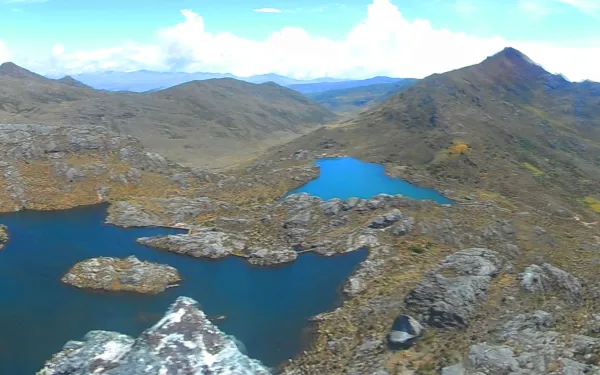
World Bank divests from Eco Oro Minerals and mining project in Colombian Páramo
In an important step for the protection of Colombia’s páramos, the International Finance Corporation (IFC) – the private lending arm of the World Bank – has decided to divest from Canadian mining company Eco Oro Minerals. The company’s Angostura gold mining project is located in the Santurbán Páramo, a protected ecosystem that provides water to millions of people. Bogota, Washington, Ottawa, Amsterdam. The International Finance Corporation (IFC), private lending arm of the World Bank Group, has decided to divest from Canadian company Eco Oro Minerals. The company’s Angostura mine is located in Colombia’s Santurbán Páramo, a protected high-altitude ecosystem that provides water to millions of people. Colombian law prohibits mining in páramos. "We applaud the Bank’s decision to side with the Committee for the Defense of Water and the Santurbán Páramo regarding the inviability of mining in the páramo," said Alix Mancilla, representative of the Committee. "We now call on the Colombian government to abstain from issuing environmental permits to any mining project which may affect Santurbán." "The IFC’s divestment is a serious political and financial blow to mining in the Santurbán páramo," said Carlos Lozano Acosta of the Interamerican Association for Environmental Defense (AIDA). "The Colombian government must now reflect on its lenient approach to large scale mining in páramos, which is illegal under national law." The IFC’s decision comes after a report issued by the Office of the Compliance Advisor Ombudsman (CAO), an independent accountability mechanism, which found that the IFC's investment did not adequately consider the environmental and social impacts of the project, breaching the financial institution's internal policies. The report was developed in response to a complaint the Committee filed before the CAO in 2012, with support from the international organizations included herein. "After intense public pressure, the IFC finally got the message and, by divesting, amplifies it further. The decision to divest strengthens the Colombian State’s ability to protect water and regulate in the public interest. We applaud this decision by the IFC, which will have an impact on Colombians everywhere," affirmed Carla Garcia Zendejas of the Center for International Environmental Law (CIEL). The IFC's decision occurs in the context of Eco Oro’s announcement that it has initiated international arbitration against Colombia, under the terms of the Canada-Colombia Free Trade Agreement at the International Centre for Settlement of Investment Disputes (ICSID), part of the World Bank. The company is filing the suit over the State’s measures to protect Colombia’s páramos. "Eco Oro Minerals' interest in Colombia is no longer about mining. Rather, it is about extorting a sovereign government for millions in taxpayer dollars and exerting pressure to weaken protections for water in Colombia. The IFC’s divestment not only extricates the Bank from a clear conflict of interest, but also highlights the presence of ill-advised mining projects in the Colombian páramo and the illegitimacy of the suit," added Garcia Zendejas of CIEL.
Read more
Now, more than ever, it’s time to work for our planet
The results of the United States election have shocked the world. Many of us feel hurt, angry and, above all, worried. For those of us who work to protect our planet and our shared environment a Trump presidency is deeply troubling. The president-elect has called climate change a hoax and promised to back out of the Paris Agreement, to dismantle President Obama’s Clean Power Plan, and to rebuild the coal industry. In the challenging years ahead, the movement to protect Earth will be more important than ever. We must all be a part of it. Today, more than ever, we reiterate our commitment to justice—for the environment and for all those whose lives depend so intimately on it. Now is the time to act. The world needs leadership, ours and yours. Each one of us at AIDA is committed to making our planet a better place to live. We are dedicated to defending it from destructive climate policies, and to uplifting its most vulnerable populations. We know what’s coming will be difficult. That’s why your support is so important. Coming together now is imperative. We have a historic responsibility to demonstrate leadership, to find peaceful solutions, and to ensure a brighter future for present and future generations. We must react with unity, engage, and collaborate. It’s time to build hope and lay the path to a peaceful, prosperous, respectful, and tolerant future. With our valued supporters and partners, AIDA will keep working to protect the Earth, its defenders, their culture, and their way of life.
Read more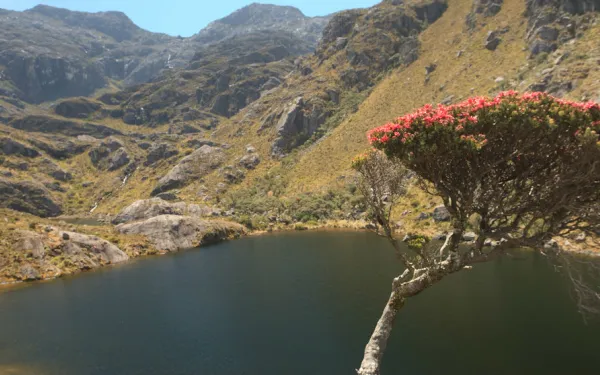
Civil society urges World Bank to withdraw funding from Colombian mining project
Organizations argue that the International Finance Corporation invested in a gold mine without taking into account potential environmental impacts, thereby failing to comply with its own investment standards. The proposed mine threatens Colombia’s Santurbán Páramo, a high-Andean ecosystem that provides water to millions of people. Washington, DC. A coalition of civil society organizations met at World Bank headquarters yesterday to demand that the International Finance Corporation (IFC), a member of the World Bank Group, withdraw its investment in the Angostura mine. The proposed gold-mining project would be located in Colombia’s Santurbán Páramo, a high-Andean ecosystem that supplies drinking water to more than two million people. The organizations also delivered a petition, signed by thousands of people from throughout the Americas, calling on IFC to withdraw its investment immediately. To present their demand, the organizations met with representatives of the IFC. They are also meeting with members of Congress and representatives of the US Department of State to discuss the situation in the Santurbán páramo and the risks its defenders face. The Committee for the Defense of Water and Páramo of Santurbán led the coalition, with support from the Center for International Environmental Law (CIEL), the Interamerican Association of Environmental Defense (AIDA), the Center for Research on Multinational Corporations (SOMO), and Mining Watch Canada. The demand presented yesterday tops off an important year in the fight to defend Santurbán. In March, the Canadian company developing the mine, Eco Oro, announced its intention to file an international arbitration suit against the Colombian government. In February Colombia’s Constitutional Court issued a ruling that bans all oil, mining, and gas operations in the country’s páramos. In August, an independent investigation undertaken by IFC’s internal watchdog, the Compliance Advisor Ombudsman, found that the investment in Angostura did not take into account the project’s potential environmental impacts, thus failing to comply with IFC’s own investment standards. The investigation was triggered by a complaint filed by the Committee and supported by the international organizations.
Read more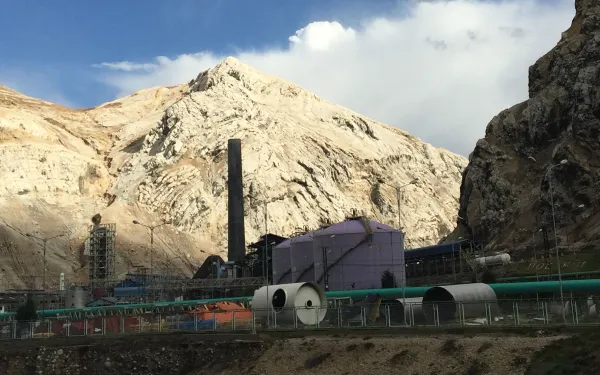
Peru begins testing La Oroya residents affected by toxic pollution
In May 2016, the IACHR required the Peruvian State to protect the life and integrity of 14 additional people affected by the heavy pollution of La Oroya’s metal smelter. Just last week, medical examinations began to evaluate the levels of heavy metals in the beneficiaries. La Oroya, Peru. Last week 7 residents of the city of La Oroya were tested for concentrations of heavy metals in their bodies resulting from long exposure to toxic air pollution from the local metal smelter. The tests come five months after the Inter-American Commission on Human Rights (IACHR) requested that the State extends precautionary measures granted in 2007, increasing the number of beneficiaries from 65 to 79. In May, the Commission urged the State to take necessary measures to protect the life and personal integrity of the 14 additional residents of La Oroya. The measures include “conducting the necessary medical assessments to determine the levels of lead, cadmium and arsenic in the blood in order to provide medical attention in accordance with applicable international standards.” Following pressure from civil society organizations, medical evaluations were finally completed on seven of the new beneficiaries. In addition to testing for heavy metals, evaluations were also made in the areas of nutrition, dentistry, psychology, internal medicine, pulmonology and gastroenterology. The results should be processed by the Center for Occupational Health and Environmental Protection and delivered to the beneficiaries in a period of no more than 45 days. The Ministry of Health promised that those who require medical treatment will be attended to by specialists in Huancayo or Lima, as the Health Center of La Oroya doesn’t have the capacity to do so. The government also promised a new date for the measurement and evaluation of beneficiaries who couldn’t attend the first set of exams. On behalf of the organizations representing the victims, we hope this is the first step towards full compliance with the precautionary measures requested by the Commission. The measures request not only testing, but also specialized medical treatment and appropriate follow-up with each of the beneficiaries—those included in the original 2007 measures, whose protection remains in force, as well as those included in the extension granted this year. “Despite the fact that the precautionary measures were issued nearly 10 years ago—calling for urgent actions to protect the health of beneficiaries—they have not yet been fully implemented. For years the health problems of the beneficiaries have not been properly cared for,” said Christian Huaylinos, attorney with the Asociación Pro Derechos Humanos (APRODEH). The State must urgently address the condition of health services in La Oroya. The local health center is operating in a state of crisis, in a place that has been declared uninhabitable by the National Institute of Civil Defense. It has only five doctors for 66,000 people in La Oroya and in the surrounding Yauli province. “La Oroya’s structural problems with health and the environment must be solved urgently,” said María José Veramendi Villa, attorney with the Interamerican Association for Environmental Defense. “The Commission must immediately issue its final report on this case, which was first presented nearly a decade ago. The victims have been waiting all this time for justice. If the State is truly committed to the people of La Oroya, that commitment must be shown through full compliance with the eventual recommendations of the Commission.”
Read more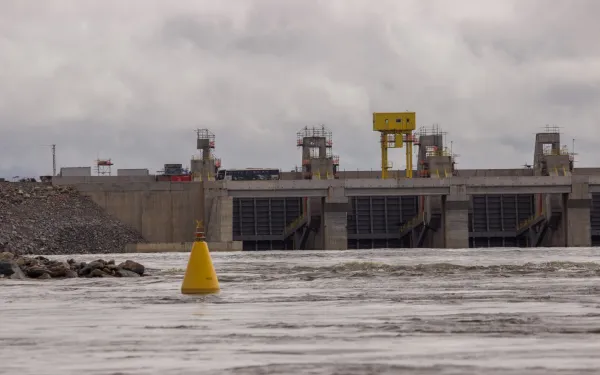
New study confirms large dams to be a principle source of greenhouse gas emissions
Researchers from the Washington State University found that the world’s reservoirs generate 1.3 percent of all greenhouse gases produced by humankind. The finding confirms once more than large dams are unsustainable energy sources that cause great harm to the climate. Seattle, United States. An important new study by researchers at the Washington State University found that large dams are an “underestimated” source of greenhouse gas. The findings show that all reservoirs, not only those built in tropical zones, release far greater quantities of emissions into the atmosphere than previously believed. According to the study, gases are released from the decomposition of organic matter after artificial reservoirs flood natural areas. In fact, over the course of a year reservoirs were found to generate 1.3 percent of the world’s greenhouse gases (more than all of Canada). Eighty percent of those emissions were methane, a pollutant 34 times stronger than carbon dioxide. “Across the Americas, governments are pushing for the construction of hundreds of new large dams, arguing that dams are clean energy and will help to mitigate climate change,” explained Astrid Puentes Riaño, co-director of the Interamerican Association for Environmental Defense (AIDA). “It’s become increasingly clear that large dams are more of a problem than a solution. World leaders must urgently start to plan and implement alternative energy solutions in order to achieve real progress in the fight against climate change.” Along with a coaltion of civil society organizations, AIDA, Amazon Watch and International Rivers have been insisting for years that operating large hydroelectric projects—such as the Belo Monte Dam in Brazil—causes severe damage to the environment, the climate, and the rights of affected communities. “Large dams are one of the most significant causes of environmental destruction in the Amazon,” said Leila Salazar-López, executive director of Amazon Watch. “In addition to emiting methane, they destroy biodiversity and the ancestral forest of thousands of indigenous and traditional communities that have lived for centuries from river ecosystems. It is imperative to calculate the true costs of large dams to understand all their impacts, and avoid causing more harm than good.” As organizations working to promote real solutions to climate change, we are committed to sharing scientific evidence about the harms of large dams to governments, international bodies, and financial institutions. "The new findings lay to rest the myth of hydropower as a clean source of electricity and underline why large hydropower should not receive climate finance," said Kate Horner, executive director of International Rivers. The results of Washington State University's study must be considered in the inventory of emissions that contribute to climate change, as well as in the execution of program and plans aimed at solving energy needs. For more information consult: Washington State University's study. Washington State University’s press release on the study. Short video from Astrid Puentes Riaño, AIDA co-director, with a brief explanation of the research and why it is important. Our Manifesto on 10 reasons why climate initiatives should not include large dams. An open letter to governments, international institutions and financial mechanisms to stop considering large dams as clean energy and to implement real solutions to climate change.
Read more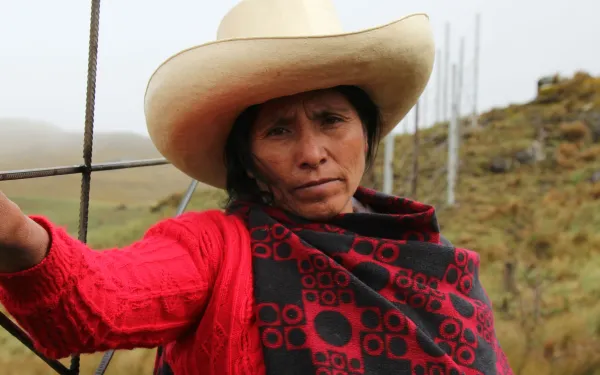
Latin American environmental defender attacked, hospitalized
Goldman Prize winner Máxima Acuña de Chaupe reportedly attacked by mining company security guards. Washington, D.C. Goldman Environmental Prize winner Máxima Acuña de Chaupe was hospitalized after being attacked, allegedly by security forces hired by Minera Yanacocha, a subsidiary of Denver-based Newmont Mining, according to information provided by the Chaupe family. The attack took place on Máxima’s property in northern Peru that the mining company has been trying to obtain for its Conga gold mine project. “Minera Yanacocha must immediately stop their harassment of Máxima and her family, denounce attacks like this one, and call on its employees, agents and all others to ensure her safety,” said Earthworks’ Executive Director Jennifer Krill. The attack against Máxima is an alarming reminder of the murder earlier this year of Honduran activist Berta Cáceres. Berta was the 2015 Goldman Environmental Prize Winner from South and Central America. Both Berta and Máxima put their lives at risk by publicly denouncing multinational corporations threatening their communities. “Environmental defenders like Máxima, and the late Berta Cáceres before her, should not have to risk their lives to protect their homes and communities,” said Martin Wagner, managing attorney at Earthjustice. Máxima, who has lived in Tragadero Grande since the early 1990s, has been beaten, intimidated, and even sued by Minera Yanacocha. In 2014, Peruvian courts ruled in Máxima’s favor in an ongoing criminal complaint by the company. In April, prominent civil society groups including Global Witness, Sierra Club, Earthjustice, Earthworks, SumOfUs and others wrote to Newmont calling on the company to drop its lawsuits against the Chaupe family and end their harassment. The company failed to respond. "The Chaupe family has been harassed and beaten by Yanacocha for years," said Katie Redford, Founder and Director at EarthRights International, which has been supporting and advising the Chaupe family. "They are prepared to pursue all legal options to obtain justice." This most recent attack highlights the failures of both Newmont and the Peruvian government to uphold security, human rights and the consent of local communities. Newmont has ignored multiple calls from civil society to stop the physical and legal harassment of the Chaupe family, and the Peruvian government has failed to provide security for the Chaupe family as ordered by the Inter-American Commission on Human Rights (IACHR). “Everyone involved in the mine project – the companies, the government, the security forces – is responsible for ensuring Máxima’s safety,” said Martin Wagner of Earthjustice. “By failing to speak and act against it, they are condoning this kind of attack and creating further risk to Máxima, not to mention their own reputations.” In February, Newmont filed a statement with the Securities and Exchange Commission indicating that they were no longer pursuing the proposed Conga mine that threatens the Chaupe home. “Newmont needs to immediately address the alleged involvement of its subsidiary Yanacocha in the criminal harassment of Máxima and her husband. Newmont has reported to investors that it isn’t pursuing the Conga mine, but these attacks on poor subsistence farmers indicate that further plans are in development. What's happened is shocking, and shareholders need to know the potential risk of such an unethical venture,” said Glen Berman, Interim Executive Director of SumOfUs. For more information: Goldman Prize profile of Máxima Acuña de Chaupe: http://www.goldmanprize.org/recipient/maxima-acuna/ Blog about the Conga project cancellation: https://www.earthworksaction.org/earthblog/detail/conga_no_va#.V-BPtJMrK-4 Civil society letter to Newmont, April 2016: https://www.earthworksaction.org/library/detail/letter_to_newmont_re_maxima_acuna Grufides website: www.grufides.org
Read more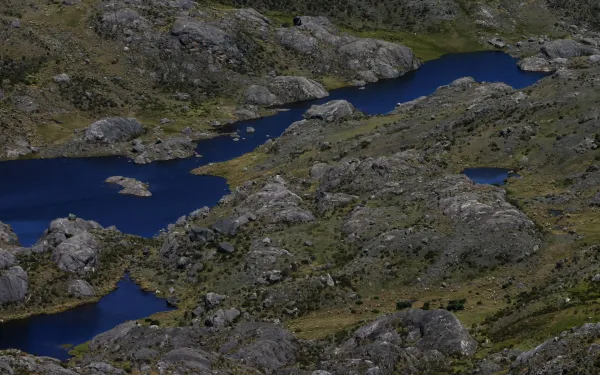
Ombudsman finds the IFC failed to comply with its investment standards in Colombia
The office of the Compliance Advisor Ombudsman found that the International Finance Corporation cannot guarantee that the Angostura mine will not have impacts on the environment. Washington/Ottawa/Bogotá/Ámsterdam. The office of the Compliance Advisor Ombudsman (CAO) has issued its final report on the complaint brought against the International Finance Corporation's (IFC) investment in Eco Oro Minerals’ Angostura mine in the high-altitude wetlands – known as páramos – of Santurbán, Colombia. The office warned that the corporation has not met all the standards required of its investments, including an assessment of potential impacts on biodiversity. The investigation was triggered by a complaint filed by the Comité por la Defensa del Agua y el Páramo de Santurbán (Committee for the Defense of Water and the Paramo de Santurban), with the support of the Center for International Environmental Law (CIEL), the Center for Research on Multinational Corporations (SOMO), the Interamerican Association for Environmental Defense (AIDA) and MiningWatch Canada. "The biodiversity of Santurbán is critical to ensuring our water supply. Therefore, any threat to its biodiversity affects the water resources of the entire metropolitan area of Bucaramanga," said Alix Mancilla, of the Santurbán Committee. The report also states that the IFC failed to assess the impacts of the entire mining project, and instead only concentrated on the impacts of the exploration stage, despite the fact that it justifies its investment on the basis of the supposed benefits that the eventual mine would bring. The CAO found that the "potential to comply with IFC’s environmental and social standards was uncertain and potentially challenging" during the extraction phase. In its conclusion, the Ombudsman points out that "one of the stated purposes of the IFC's investment was to develop the studies necessary to determine whether the project could comply with IFC's [performance standards]. " However, the company did not complete the required studies, including an Environmental and Social Impact Assessment, a biodiversity baseline study, and critical habitat assessments. Despite repeated lack of compliance by the client, the CAO found that the "IFC has not pursued a remedy, but has made subsequent investments in the company." "If the purpose of IFC's investment was to determine the viability of the project, there is no justification for the lack of studies – studies that are required to make an investment decision. You cannot greenlight a project in such a critical region for the population of Bucaramanga without assessing its actual consequences," declared Carla Garcia Zendejas of CIEL. The IFC's response to the Ombudsman’s report did not acknowledge any wrongdoing or make commitments to address its findings. Instead, the IFC merely reiterated its justification for investing in the project, claiming that the eventual mine will bring employment and revenue. The response is silent regarding its client's intent to file an investment dispute under the Canada-Colombia Free Trade Agreement. "It is very serious that despite failures in the risk assessment, the IFC has continued to invest in the Angostura mining project," added Kris Genovese, from SOMO. “It is disappointing, but not surprising, that the IFC has failed once again to respond to the findings of a CAO investigation.” AIDA attorney Carlos Lozano Acosta explained that “the project is illegal; that’s why its license was denied in 2011, and why the Constitutional Court ratified the prohibition of mining in páramos. It worries us that the IFC invested in a company whose project, from the beginning, was not viable, and who would file an international lawsuit against Colombia, one of the member states of the World Bank.” The report reveals that the IFC has an explicit policy of investing in junior mining companies with limited capacity to manage environmental and social issues, in countries where the regulatory framework is weak or not enforced. "It is time for the IFC to withdraw its investment in Eco Oro and stop investing in junior mining companies, as has been done in Colombia and elsewhere, knowing the serious social and environmental damage this entails and the context of impunity in which these companies are operating," stated Jen Moore of MiningWatch. "As communities affected by the mine, we will continue challenging the project in court, and we will use all legal means at our disposal to stop it, as we have done so far," affirmed Elizabeth Martinez from the Committee for Santurban. Currently, Colombia's Constitutional Court is considering a legal action filed by the Santurbán Committee with support from AIDA, concerning the lack of citizen participation in the demarcation of the wetland. A decision is expected soon. The IFC is the private-sector lending arm of the World Bank Group. The CAO is an independent accountability mechanism that receives complaints from people who may be affected by IFC investment projects. The CAO’s report and communiqué, including the IFC’s response can be found here: Communiqué: http://www.cao-ombudsman.org/cases/document-links/documents/CAOCommuniqueEcoOroSummaryofFindingsAugust252016.pdf Report: http://www.cao-ombudsman.org/cases/document-links/documents/CAOComplianceInvestigationReportonIFCinvestmentinEcoOroMinerals-English.pdf Response by the IFC: http://www.cao-ombudsman.org/cases/document-links/documents/EcoOro-IFCManagementResponsetoCAOInvestigationReport-5August2016.pdf
Read more